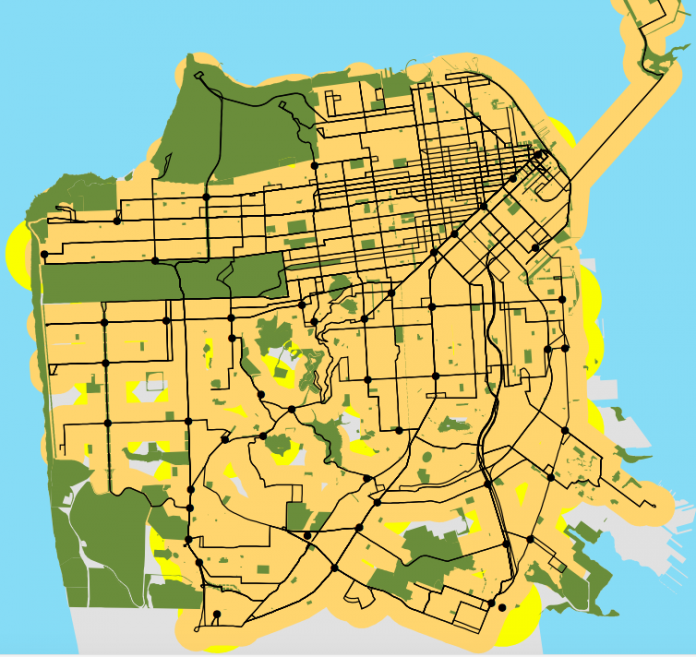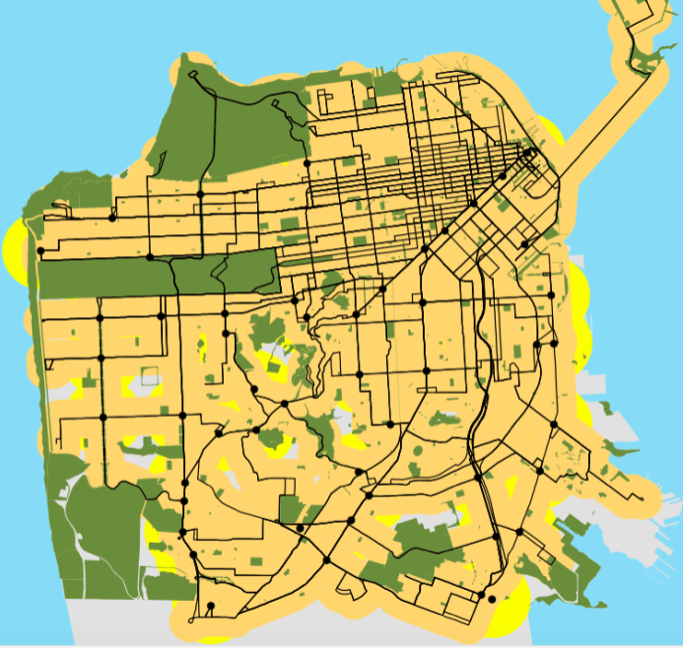
The story hasn’t received much news media attention, in part because it came as no surprise, but the Board of Supes this week decided, by a 9-2 vote, to oppose state Sen. Scott Wiener’s housing deregulation bill– and that’s a big deal.
The mayor supports SB 50. The developers who so often dominate SF politics support SB 50. The city’s Sacramento lobbyist, at the direction of Mayor London Breed, has already testified in favor of SB 50. A lot of observers say SB 50 is going to pass anyway.

But supervisors from nearly every district (except for Sups. Vallie Brown and Ahsha Safai) voted with sponsor Sup. Gordon Mar not to support the measure unless it’s amended – and the message I’m getting from opponents is that the amendments would have to be very substantial.
SB 50 would force San Francisco, and every other city in the state, to accept much higher housing density along “quality” transit corridors and in a lot of other areas related to employment access. The concept, Wiener says, is the encourage more housing close to transit, to prevent sprawl and address the radical disconnect between jobs and housing in this state, particularly in the Bay Area.
But the real housing crisis in the Bay Area is affordability – and SB 50 does nothing to address that. It allocates not one penny of the state’s wealth, which is about to increase thanks to the tech IPOs that are causing the displacement of vulnerable communities, to affordable housing. It imposes no new affordability mandates on developers.
It does nothing to stop Ellis Act evictions or allow rent controls on vacant apartments – both of which are key to preventing displacement.
Instead, SB 50 leaves the private market in charge of solving the housing crisis, and that has never worked.
The supervisors who discussed the bill made it clear: They aren’t against density. They agree that San Francisco should have more housing near transit. But they don’t trust developers to provide housing for working people in this town.
That’s a huge shift from just a few years ago. Combined with the vote rejecting a proposal that would shadow a Soma park, it suggests a new level of activism and sanity about housing policy on the current board.
Brown, who in committee voted against the idea of opposing SB 50, asked that the file be duplicated – which means it has been passed, stating the city’s opposition to the bill, but will go back to committee for discussion about what amendments might make SB 50 acceptable.
Everyone agrees that’s a good idea. But as a matter of housing policy, any amendments the supes propose would likely make the bill a loser in Sacramento.
The key element to all of this is simple: Whatever the city and the state does about housing, activists are going to demand that existing vulnerable communities are protected. That means more than a brief delay, as in the current Wiener bill, before low-income areas are opened up to predatory developers.
It means that anyone who currently lives here gets to stay, even if someone with more money wants their apartment.
That would require an end to the Ellis Act, real rent control, and eviction protections that the state Legislature has rejected in the past.
It would require state funding to increase transit service in dense areas where existing service is choked by excess demand.
All of this harks back to CASA, the supposed “grand bargain” to solve the housing crisis. Community advocates initially participated, saying that allowing more market-rate housing would be acceptable – if and only if that were paired with the end of the Ellis Act and effective rent control.
Legislation like SB 50 rejects that concept: There’s no “bargain” in the deal. The developers get what they want, without any effective community protections.
Imagine the billions of dollars that will pour into the state coffers with the next round of IPOs. Why isn’t Wiener asking that all of that money go to stabilize and protect existing vulnerable communities – including the construction of a vast amount of (sure, dense) affordable housing, served by new, state-funded transit?
The supes are asking the right questions. I doubt Wiener would accept the type of amendments that would make his bill acceptable – and if he did, I doubt the Legislature, which is under the thumb of the real-estate industry, would accept them.
But that’s what’s at stake here.

